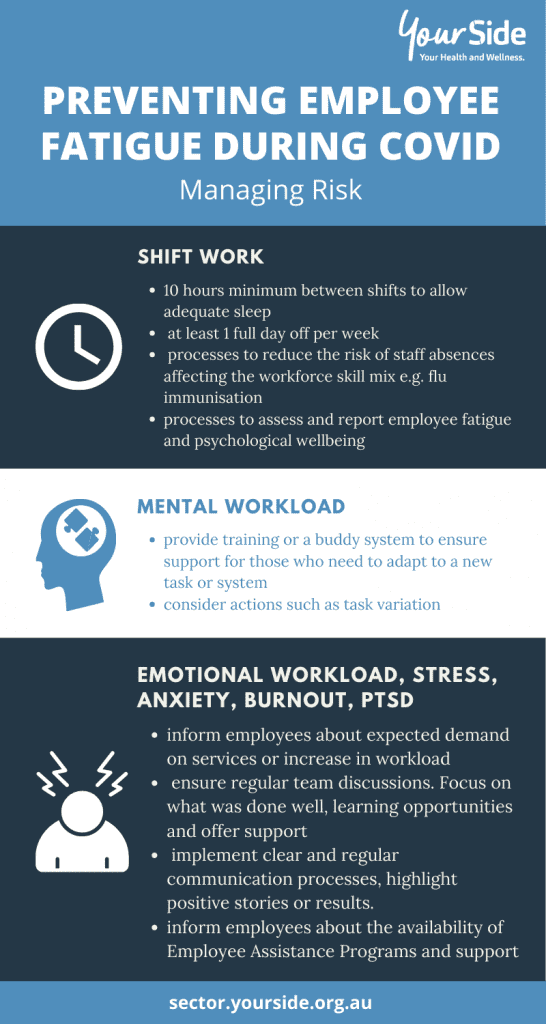Preventing Employee Fatigue During COVID
Written by Ilsa Bird, Sector Support Coordinator
Providing care during Covid may place your employees at risk, beyond the threat of contracting the virus. Workforce shortages to deliver additional care, especially in residential care settings means that workers may be experiencing higher demand and increased stress to perform their role. Home Care workers are also at risk, and the following provides a summary of what you can do to support your staff.
Under the NSW Work Health and Safety Act (2011), employers are required to eliminate or minimise risks to employee health and safety as far as reasonably practical. This includes preventing risks to psychological health, associated with potential exposure to coronavirus (COVID-19).
What are the WHS risks during COVID-19?
– working longer or additional shifts
– dealing with an increased workload
– not receiving adequate breaks or rest between shifts
– prolonged periods wearing PPE and the need to change PPE regularly
– entering a client’s home who may be/is COVID positive
Each of these risks can impact an employee’s ability to hydrate, eat regular meals, and get adequate rest and sleep. This may lead to symptoms such as stress and anxiety, physical, mental and emotional fatigue, as well as burnout and even Post Traumatic Stress Disorder (PTSD).
Managing the Risks
The management of health and safety risks will be different for every organisation and will be dependent upon resources available for employers. Below are some risk control measures related to COVID-19 WHS.

For information about support services for staff, check out our article about fostering the mental and emotional wellbeing of staff here.
To ensure that you are receiving all of our future articles as well as aged care updates, sign up to our monthly Sector Support e-Bulletin here.